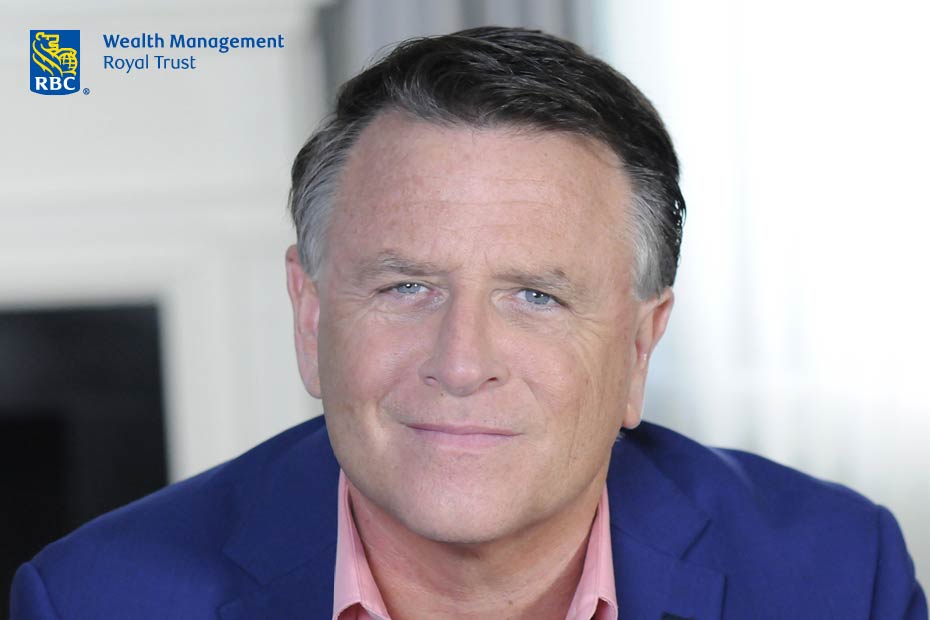Published April 4, 2022 • 4 Min Read
This article is part of a series created in collaboration between RBC Wealth Management Royal Trust and David Chilton, author of best-selling personal finance guides The Wealthy Barber and The Wealthy Barber Returns, and former dragon on CBC’s Dragons’ Den. #TrustRoyalTrust
I’m 57 years old (though, I would argue I look only 56). At this age, my generation’s parents are passing away with saddening regularity. My mother (and hero) died two summers ago and I seem to attend at least one funeral a month of a friend’s mom or dad.
It’s never easy on family. Ever.
Even when the parent has been battling a major health issue and, thus, enduring a low quality of life. Even when the parent has been blessed to live into his or her late 80s or 90s.
It’s still the loss of a mom. Or a dad. A grandparent. An inspiration. A huge influence. A big part of who we are.
The grief and its associated stress are difficult to cope with for all of us.
Compounding the challenge is the fact that we’re often also doing our best to help others (for example, our children, the deceased’s grandchildren) to deal with this extremely emotional experience.
It’s incredibly draining. Many describe it, and I would agree, as trying to function while in a mental fog. Interestingly, I found when my mom passed the person I most often wanted, even sometimes started, to call to help me work through the pain was, of course, my mom.
As I said, it’s never easy on family. Ever.
Yet, precisely at this most difficult of times, often a particular family member is asked to take on a significant task—to act as the will’s executor.
I would argue, and many, many of my friends would aggressively second, that “burden” is a more appropriate word than “task.”
Being an executor is always a huge responsibility. And frequently it involves a tremendous amount of time and a tremendous amount of stress.
A tremendous amount.
And, again, all of this is shouldered as the executor deals with his or her own grief and that of family members.
Why not get help? Why not turn to the professionals?
It seems odd to me that many executors, even when feeling overwhelmed, insist on being a DIYer. Does that seem wise with all the aforementioned stress? With the potential for personal liability? With the chance (perhaps good chance) that there will be at least some family conflict?
To repeat, why not get help?
Help from experienced professionals. Help from people who have seen it all before. Help from people who know the subtleties of the legal- and tax-filing requirements. Help from people who offer a detached perspective. Help from people who work in this field all day, every day.
Help from the experts.
It just makes good sense to have a seasoned professional working with you on certain facets of the estate-settlement process. There to handle as many of the details on your behalf as your specific case requires. All the while with you retaining the authority to make final decisions.
This isn’t just about executing the will’s instructions as well as is possible. Though, that’s ultra-important—remember, being an executor is all about carrying out the deceased’s last wishes, and, of course, you owe it him/her to do that exceptionally well. But getting professional help is also about peace of mind and family harmony. That’s the part that’s way too frequently forgotten or underestimated.
Professional help seems a wise investment, indeed.
Not sure how to get started? RBC Royal Trust can help guide you.
RBC Royal Trust and RBC Wealth Management are business segments of the Royal Bank of Canada. Please click the “Legal” link at the bottom of this page for further information on the entities that are member companies of RBC Wealth Management. The content in this publication is provided for general information only and is not intended to provide any advice or endorse/recommend the content contained in the publication. ®/TM Trademark(s) of Royal Bank of Canada. Used under license. © Royal Bank of Canada 2019. All rights reserved.
This article is intended as general information only and is not to be relied upon as constituting legal, financial or other professional advice. A professional advisor should be consulted regarding your specific situation. Information presented is believed to be factual and up-to-date but we do not guarantee its accuracy and it should not be regarded as a complete analysis of the subjects discussed. All expressions of opinion reflect the judgment of the authors as of the date of publication and are subject to change. No endorsement of any third parties or their advice, opinions, information, products or services is expressly given or implied by Royal Bank of Canada or any of its affiliates.
Any information, opinions or views provided in this document, including hyperlinks to the RBC Direct Investing Inc. website or the websites of its affiliates or third parties, are for your general information only, and are not intended to provide legal, investment, financial, accounting, tax or other professional advice. While information presented is believed to be factual and current, its accuracy is not guaranteed and it should not be regarded as a complete analysis of the subjects discussed. All expressions of opinion reflect the judgment of the author(s) as of the date of publication and are subject to change. No endorsement of any third parties or their advice, opinions, information, products or services is expressly given or implied by RBC Direct Investing Inc. or its affiliates. You should consult with your advisor before taking any action based upon the information contained in this document.
Furthermore, the products, services and securities referred to in this publication are only available in Canada and other jurisdictions where they may be legally offered for sale. Information available on the RBC Direct Investing website is intended for access by residents of Canada only, and should not be accessed from any jurisdiction outside Canada.
Share This Article






